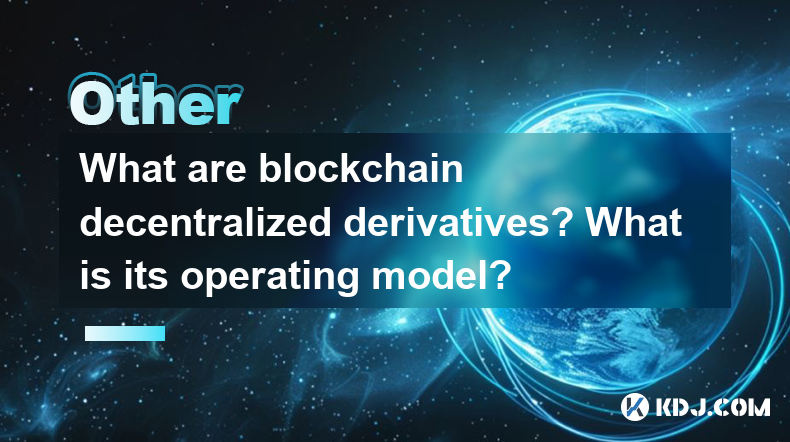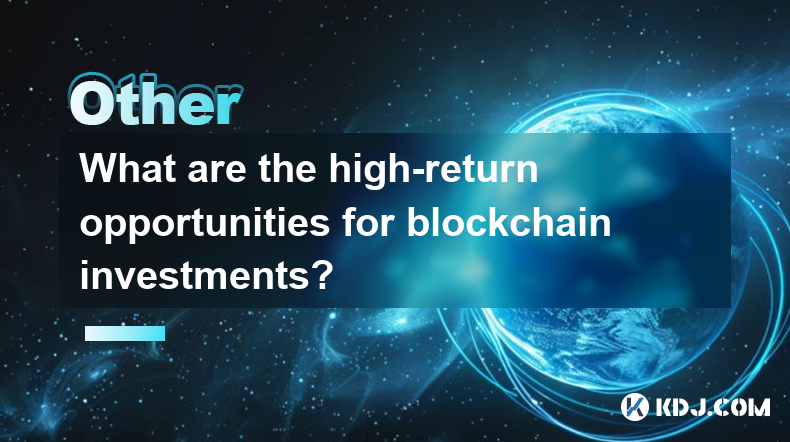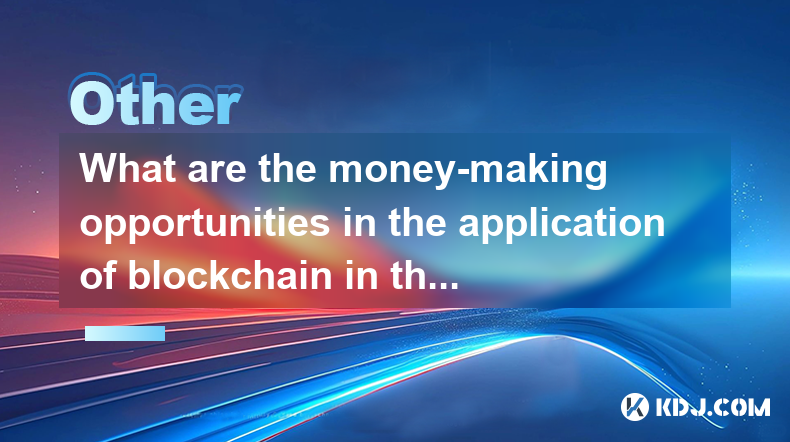-
 Bitcoin
Bitcoin $79,012.1761
-4.78% -
 Ethereum
Ethereum $1,570.4026
-12.09% -
 Tether USDt
Tether USDt $0.9994
-0.02% -
 XRP
XRP $1.9666
-7.46% -
 BNB
BNB $555.4328
-6.02% -
 USDC
USDC $0.9999
-0.01% -
 Solana
Solana $107.5201
-9.67% -
 Dogecoin
Dogecoin $0.1506
-10.27% -
 TRON
TRON $0.2315
-2.62% -
 Cardano
Cardano $0.5814
-10.27% -
 UNUS SED LEO
UNUS SED LEO $8.8602
-2.17% -
 Chainlink
Chainlink $11.3795
-10.04% -
 Toncoin
Toncoin $3.0063
-7.92% -
 Stellar
Stellar $0.2370
-5.38% -
 Avalanche
Avalanche $16.1395
-9.48% -
 Shiba Inu
Shiba Inu $0.0...01134
-7.55% -
 Sui
Sui $1.9135
-13.06% -
 Hedera
Hedera $0.1425
-11.59% -
 Polkadot
Polkadot $3.7145
-5.76% -
 MANTRA
MANTRA $5.9824
-4.31% -
 Bitcoin Cash
Bitcoin Cash $272.1059
-9.40% -
 Litecoin
Litecoin $71.2279
-13.11% -
 Dai
Dai $1.0000
-0.02% -
 Ethena USDe
Ethena USDe $0.9987
-0.05% -
 Bitget Token
Bitget Token $4.1866
-5.67% -
 Pi
Pi $0.5915
4.23% -
 Monero
Monero $200.3568
-5.71% -
 Hyperliquid
Hyperliquid $10.5427
-10.74% -
 Uniswap
Uniswap $5.1188
-11.73% -
 OKB
OKB $50.3711
-2.37%
What are blockchain decentralized derivatives? What is its operating model?
Blockchain decentralized derivatives use smart contracts to automate derivative trading, eliminating intermediaries and enhancing transparency via blockchain's immutability; however, scalability, regulation, and smart contract vulnerabilities remain challenges.
Mar 14, 2025 at 03:56 pm

Key Points:
- Blockchain decentralized derivatives utilize smart contracts on a blockchain to automate the creation, execution, and settlement of derivatives contracts. This eliminates the need for intermediaries like clearinghouses.
- The operating model relies on the immutability and transparency of the blockchain, enhancing trust and reducing counterparty risk. Different blockchain networks and protocols offer varying functionalities and capabilities for these derivatives.
- Several challenges exist, including scalability, regulatory uncertainty, and the potential for smart contract vulnerabilities. The technology is still evolving, with ongoing development and innovation.
What are Blockchain Decentralized Derivatives?
Blockchain decentralized derivatives are derivative contracts whose creation, execution, and settlement are managed entirely by smart contracts on a blockchain. Unlike traditional derivatives that rely on centralized intermediaries like exchanges and clearinghouses, these decentralized versions leverage the inherent properties of blockchain technology—transparency, immutability, and decentralization—to offer a potentially more efficient and transparent system. The smart contract acts as the agreement, automatically enforcing the terms outlined within its code. This removes the need to trust a central authority, a key advantage for many participants.
Operating Model of Blockchain Decentralized Derivatives:
The operating model of blockchain decentralized derivatives centers around smart contracts programmed to execute specific functions based on predefined parameters. These parameters often include the underlying asset, the contract type (e.g., futures, options, swaps), and the terms of the agreement (e.g., strike price, expiry date). Once initiated, the smart contract automatically manages the entire lifecycle of the derivative, from creation and execution to settlement. This automation drastically reduces operational costs and processing time.
The choice of blockchain network plays a crucial role. Some networks are better suited for handling the high transaction volume and complex calculations required for sophisticated derivative products. The selection also impacts factors like transaction fees and speed. Protocols like Ethereum, with its extensive smart contract capabilities, are commonly used, although other emerging platforms are also exploring this space.
Decentralized Exchanges (DEXs) and Their Role:
Decentralized exchanges (DEXs) are key players in the ecosystem. They provide a platform for users to trade these blockchain-based derivatives without relying on a centralized order book. This further enhances decentralization and reduces the risk of manipulation or censorship by a single entity. Various DEXs employ different mechanisms for matching buyers and sellers, such as automated market makers (AMMs) or order book-based systems adapted for a decentralized environment.
Smart Contract Functionality in Detail:
Smart contracts are the core of this system. They are self-executing contracts with the terms of the agreement directly written into code. When certain conditions are met, the contract automatically executes the agreed-upon actions. For example, in a decentralized futures contract, the smart contract would automatically settle the position based on the price of the underlying asset at the expiry date. This automation ensures that the contract is executed fairly and efficiently without the need for manual intervention.
- Order Placement: Users initiate trades through interactions with the smart contract, specifying the details of their desired derivative position.
- Order Matching: The DEX's matching engine (often an AMM) finds counterparties for trades, or the smart contract might automatically execute against a liquidity pool.
- Contract Execution: Upon fulfillment of the pre-defined conditions, the smart contract automatically executes the trade and updates the relevant accounts.
- Settlement: The smart contract facilitates the settlement of the derivative contract, transferring funds or assets between the parties involved according to the terms of the agreement.
Challenges and Considerations:
Several challenges hinder the widespread adoption of blockchain decentralized derivatives. Scalability remains a major concern, as high transaction volumes can lead to network congestion and increased costs. Regulatory uncertainty also poses a significant obstacle, as the legal framework for these innovative financial instruments is still evolving. The risk of smart contract vulnerabilities is another crucial aspect. A flaw in the code could lead to significant financial losses. Security audits and thorough testing are vital before deploying such contracts.
Underlying Assets and Types of Derivatives:
The underlying assets for blockchain decentralized derivatives can be diverse, including cryptocurrencies, stablecoins, and even tokenized real-world assets. This variety opens up new opportunities for hedging and speculation. The types of derivatives available also mirror traditional markets, including futures, options, and swaps. However, the decentralized nature often necessitates adaptations to existing contract structures to fit the blockchain environment. This requires careful design and consideration of the technical limitations and possibilities of the blockchain platform.
Oracles and Data Integrity:
Oracles play a crucial role in feeding real-world data into smart contracts. For example, in a decentralized futures contract, an oracle would provide the price of the underlying asset at the expiry date. The accuracy and reliability of these oracles are paramount, as any manipulation or error could compromise the integrity of the contract. Multiple oracle solutions are often used to mitigate this risk. The selection of a reliable oracle network is a critical consideration in the design and deployment of these systems.
Liquidity and Market Depth:
The success of any derivative market depends heavily on liquidity and market depth. For blockchain decentralized derivatives, attracting sufficient liquidity remains a challenge. While decentralized exchanges are working on solutions, including incentivization programs and AMM designs aimed at improving liquidity, the overall market is still relatively young and less liquid than established centralized exchanges. This can impact price discovery and trading efficiency.
Frequently Asked Questions:
Q: Are blockchain decentralized derivatives regulated?
A: The regulatory landscape for blockchain decentralized derivatives is still developing and varies significantly across jurisdictions. Many jurisdictions are still grappling with how to classify and regulate these new financial instruments.
Q: What are the security risks associated with blockchain decentralized derivatives?
A: Security risks include smart contract vulnerabilities (bugs in the code), oracle manipulation (false data feeding into the contract), and the potential for hacks targeting the DEX or the blockchain itself. Thorough security audits and diverse security measures are essential.
Q: How do blockchain decentralized derivatives compare to traditional derivatives?
A: Blockchain decentralized derivatives offer potential advantages like increased transparency, reduced counterparty risk, and automation. However, they also face challenges like scalability, regulatory uncertainty, and liquidity limitations compared to established traditional markets.
Q: What are the benefits of using blockchain for derivatives?
A: Benefits include increased transparency (all transactions are recorded on the blockchain), reduced counterparty risk (smart contracts automatically enforce agreements), and potentially lower costs due to automation. Additionally, the decentralized nature offers resilience to censorship and single points of failure.
Q: What are the limitations of using blockchain for derivatives?
A: Limitations include scalability issues (handling high transaction volumes), regulatory uncertainty, the need for reliable oracles, and the risk of smart contract vulnerabilities. Liquidity in these markets is also often lower than in traditional markets.
Disclaimer:info@kdj.com
The information provided is not trading advice. kdj.com does not assume any responsibility for any investments made based on the information provided in this article. Cryptocurrencies are highly volatile and it is highly recommended that you invest with caution after thorough research!
If you believe that the content used on this website infringes your copyright, please contact us immediately (info@kdj.com) and we will delete it promptly.
- Tether to Acquire Majority Stake in Adecoagro; Bioceres Allegedly Next
- 2025-04-07 05:15:13
- Renowned Crypto Investor Has Outlined a Brave XRP Price Prediction
- 2025-04-07 05:15:13
- Toncoin (TON) Price Regains Traction and Might Soon Surge Further Toward the $4.80 Resistance Zone
- 2025-04-07 05:10:12
- The cryptocurrency mining landscape in 2025 is flourishing, with cloud mining shining as a highly accessible
- 2025-04-07 05:10:12
- Solaxy (SOLX) Raises $28M in Presale, Aiming to Be the Arbitrum of Solana
- 2025-04-07 05:05:13
- BingX Launches Perpetual Trading on TradingView
- 2025-04-07 05:05:13
Related knowledge

Is the ranking of Chinese blockchain apps real and reliable?
Apr 04,2025 at 09:01pm
The ranking of Chinese blockchain apps has become a topic of interest for many in the cryptocurrency community, as it provides insights into the popularity and adoption of blockchain technology within China. However, the reliability and authenticity of these rankings are often questioned. This article aims to delve into the factors that influence these ...

What are the future development trends of blockchain game development?
Apr 03,2025 at 05:00am
Blockchain technology has revolutionized various industries, and gaming is no exception. As we look to the future, several trends are set to shape the development of blockchain games. These trends not only promise to enhance the gaming experience but also to integrate blockchain technology more seamlessly into the gaming ecosystem. Let's explore these t...

What are the high-return opportunities for blockchain investments?
Apr 05,2025 at 02:35pm
Blockchain technology has revolutionized the financial world, offering numerous high-return investment opportunities. These opportunities span various sectors within the cryptocurrency ecosystem, including cryptocurrencies, decentralized finance (DeFi), non-fungible tokens (NFTs), and blockchain startups. Each of these areas presents unique risks and re...

What are the maintenance costs of blockchain system development?
Apr 03,2025 at 06:07pm
The maintenance costs of blockchain system development are multifaceted and depend on various factors. These costs can include technical maintenance, security updates, infrastructure expenses, and personnel costs. Understanding these elements is crucial for anyone planning to develop or maintain a blockchain system. Technical MaintenanceTechnical mainte...

What are the money-making models of blockchain games?
Apr 04,2025 at 02:00pm
Blockchain games have emerged as a revolutionary way for players to earn real money while enjoying their favorite pastime. These games leverage the power of blockchain technology to create unique money-making models that benefit both the players and the developers. In this article, we will explore the various money-making models of blockchain games and ...

What are the money-making opportunities in the application of blockchain in the field of Internet of Things?
Apr 05,2025 at 10:35pm
The integration of blockchain technology with the Internet of Things (IoT) presents numerous money-making opportunities. Blockchain, with its decentralized and secure nature, can revolutionize how IoT devices interact, manage data, and conduct transactions. This article will explore various avenues where entrepreneurs, developers, and investors can capi...

Is the ranking of Chinese blockchain apps real and reliable?
Apr 04,2025 at 09:01pm
The ranking of Chinese blockchain apps has become a topic of interest for many in the cryptocurrency community, as it provides insights into the popularity and adoption of blockchain technology within China. However, the reliability and authenticity of these rankings are often questioned. This article aims to delve into the factors that influence these ...

What are the future development trends of blockchain game development?
Apr 03,2025 at 05:00am
Blockchain technology has revolutionized various industries, and gaming is no exception. As we look to the future, several trends are set to shape the development of blockchain games. These trends not only promise to enhance the gaming experience but also to integrate blockchain technology more seamlessly into the gaming ecosystem. Let's explore these t...

What are the high-return opportunities for blockchain investments?
Apr 05,2025 at 02:35pm
Blockchain technology has revolutionized the financial world, offering numerous high-return investment opportunities. These opportunities span various sectors within the cryptocurrency ecosystem, including cryptocurrencies, decentralized finance (DeFi), non-fungible tokens (NFTs), and blockchain startups. Each of these areas presents unique risks and re...

What are the maintenance costs of blockchain system development?
Apr 03,2025 at 06:07pm
The maintenance costs of blockchain system development are multifaceted and depend on various factors. These costs can include technical maintenance, security updates, infrastructure expenses, and personnel costs. Understanding these elements is crucial for anyone planning to develop or maintain a blockchain system. Technical MaintenanceTechnical mainte...

What are the money-making models of blockchain games?
Apr 04,2025 at 02:00pm
Blockchain games have emerged as a revolutionary way for players to earn real money while enjoying their favorite pastime. These games leverage the power of blockchain technology to create unique money-making models that benefit both the players and the developers. In this article, we will explore the various money-making models of blockchain games and ...

What are the money-making opportunities in the application of blockchain in the field of Internet of Things?
Apr 05,2025 at 10:35pm
The integration of blockchain technology with the Internet of Things (IoT) presents numerous money-making opportunities. Blockchain, with its decentralized and secure nature, can revolutionize how IoT devices interact, manage data, and conduct transactions. This article will explore various avenues where entrepreneurs, developers, and investors can capi...
See all articles





















































































